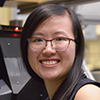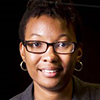Ten CS faculty join school in first year of Destination Vanderbilt: Computer Science initiative
The Vanderbilt University School of Engineering announces the appointment of 14 faculty members to its full-time teaching staff, which includes 10 new computer science faculty members appointed during the first year of the Destination Vanderbilt: Computer Science initiative, part of a $100 million university excellence initiative to recruit new faculty.
The 10 computer science faculty members are Jonathan Sprinkle, David Hyde, Forrest Laine, Jie Ying Wu, Kevin Leach, Meiyi Ma, Soheil Kolouri, Yu Huang, Shervin Hajiamini and Dana Zhang.
The other new faculty are Ahmad F. Taha in civil and environmental engineering; Xiaoguang Dong in mechanical engineering; Andrea Locke and Marc C. Moore in biomedical engineering.

Professor Jonathan Sprinkle’s research focuses on model-based design of cyber-physical systems and new generation transportation in smart and connected communities. His primary application domain is connected and autonomous vehicles and their impact of traffic flow. His work has appeared in the key publication venues of the CPS and automation and control communities and in publications of the transportation community. He has published more than 30 journal papers as well as nearly 100 conference papers. His scholarly work has been recognized by several awards, including NSF CAREER Award as well as other institutional faculty awards. He served as a Program Director in a number of highly visible National Science Foundation programs from 2017 to 2019, including the Cyber-Physical Systems program, the Smart and Connected Communities program, the Research Experience for Undergraduate Programs, the Formal Methods in the Field program, and the NSF CAREER program. In 2021, he received a commendation from the NSF Director for service to the COVID-19 Working Group. Before joining Vanderbilt, he was the Litton Industries John M. Leonis Distinguished Associate Professor with tenure and the Interim Director of the Transportation Research Institute at the University of Arizona. Sprinkle earned his Ph.D. in electrical engineering from Vanderbilt University in 2003.

Assistant Professor David Hyde concentrates on physical simulation, learning, and real-world data. He uses experimental results that can directly and automatically drive improved and novel physical simulations. Such simulations can make predictions with unprecedented scale, complexity, and accuracy for the analysis and design of next-generation systems. In addition to his core focus, Hyde has published on scientific visualization in virtual reality, low-level computer memory management, and other such diverse topics in computer science. Before joining Vanderbilt, he was a postdoctoral scholar and an assistant adjunct professor in mathematics at UCLA where he earned a perfect teaching evaluation score. His accomplishments include two patent issues in quantum computing and considerable software development experience in industry. He has received multiple awards including the Gerald J. Lieberman Fellowship for outstanding research, teaching, and service at Stanford University and a best paper honorable mention award at CHI 2020, the premier conference on human factors in computing systems. Hyde completed his Ph.D. in computer science in 2019 at Stanford.

Assistant Professor Forrest Laine has developed methods for finding equilibria of dynamic games with applications to game-theoretic motion planning for autonomous vehicles, efficient algorithms for real-time trajectory optimization and multi-object tracking, and methods for estimating uncertainty in data-driven perception systems, and accounting for that uncertainty in decision-making modules. From an experimental perspective, he has validated his research results by developing experimental unmanned aerial vehicles. His research matches targeted areas of interest at Vanderbilt CS that include autonomous and intelligent human-AI-machine systems and AI for healthcare focusing on medical robotics, surgery, and interventional technologies. Laine earned his Ph.D. in electrical engineering and computer science in 2021 at the University of California-Berkeley. At UC Berkeley, he received multiple awards for teaching and service.

Assistant Professor Jie Ying Wu will join Vanderbilt in January 2022. Her research interests are in the area of medical robotics. In particular, she focuses on using machine learning techniques to transform surgical robots from a teleoperated tool to an intelligent assistant. Her work on leveraging vision and kinematics data to improve realism of biomechanic soft tissue simulation for robotic surgery received the audience award at the 2020 International Conference on Information Processing in Computer-Assisted Interventions. Wu has published in nine full-length publications at top-tier venues, and she has won multiple awards. In addition, Wu was part of a Johns Hopkins team that received a Kaggle COVID-19 Dataset Award for informing the United States’ response to COVID-19. She earned a B.Sc. in computer engineering from Brown University in 2015, a M.Sc. in applied math from ENS Paris-Saclay in 2016, and a Ph.D. in computer science at Johns Hopkins University in 2021.

Assistant Professor Kevin Leach will join Vanderbilt in January 2022. He is a Senior Research Fellow in computer science and engineering at the University of Michigan. Leach is an interdisciplinary researcher who combines systems security and dependable autonomous systems focusing on robust computer system design. He has developed frameworks and techniques for robust and faithful system analyses to understand and defend against advanced evasive malware, and he has developed techniques to detect and remove vulnerabilities from intelligent autonomous systems and large-scale cloud infrastructure. Recently, he used functional Magnetic Resonance Imaging to conduct studies of human subjects to understand cognition associated with developer decision-making. Leach has 32 full-length publications at top-tier venues in cybersecurity and dependable systems. He has received several best paper awards and best presentation awards, and he has contributed to and submitted proposals that have resulted in six grants of $7.4 million total funding. Leach received his Ph.D. in computer science in 2016 from University of Virginia.

Assistant Professor Meiyi Ma’s research is at the intersection of machine learning, formal methods, and cyber-physical systems. She aims to develop rigorous and robust AI toward real-world social-aware human-in-the-loop CPS and Internet of Things by integrating formal methods and machine learning. She has developed novel formal logic-based learning frameworks to verify and guide deep learning models, and developed decision support systems for integrated IoT services in areas of smart cities and health care. Ma has a record of 20 full-length publications at top-tier venues in CPS and machine learning. She has received multiple research awards and she was selected for the 2020 Rising Stars in EECS workshop at the University of California-Berkeley. In 2021, Ma was also named a Rising Star in Data Science by the Center for Data and Computing at the University of Chicago in recognition of her potential as an exceptional data scientist. She completed her Ph.D. in computer science at University of Virginia in 2021.

Assistant Professor Soheil Kolouri joins Vanderbilt from HRL Laboratories in Malibu, California, where he was a Principal Machine Learning Scientist focusing on various aspects of deep learning. He received his Ph.D. in biomedical engineering in 2015 from Carnegie Mellon University. Kolouri also was a postdoctoral scholar at CMU focusing on transport-based pattern recognition and image modeling approaches for automated analysis of histopathology, MRI, and fMRI images. He develops practical machine learning and computer vision solutions for challenging problems in biomedical signal and image analysis. Kolouri has more than 40 full-length publications, including 13 journal articles and 25 conference papers at top-tier venues. He has contributed to numerous DARPA proposals in machine learning and has successfully secured a total of nearly $15 million in funding as a PI, including three large DARPA projects. At HRL Laboratories, he mentored Ph.D. students from top universities during their internships. Kolouri’s accomplishments include six patents issues in 2020 and 12 patent applications pending.

Assistant Professor Yu Huang will join Vanderbilt in January 2022. Huang’s research interests are primarily at the intersection of software engineering and cognitive science. She has pioneered a novel research direction by conducting neuroimaging studies to understand the cognitive processes by which novices and experts comprehend software code. Her research results have been published in top-tier conferences. She has a publication record of 22 peer-reviewed publications at Association for Computing Machinery and IEEE international venues. Her publications include articles in psychology and hardware such as the Journal of Medical Internet Research and Field Programmable Logic and Applications. Huang’s work on “Neural Representations of Data Structure Manipulation Using fMRI” received the ACM SIGSOFT Distinguished Paper Award in 2019. She has received multiple research awards and fellowships from Google, the University of Michigan, and the University of Virginia. She was selected for Rising Stars in EECS at UC Berkeley in 2020. Huang earned a Ph.D. in computer science and engineering in 2021 at University of Michigan.

Assistant Professor of the Practice of Computer ScienceShervin Hajiamini designs and develops resource allocation algorithms to improve the energy efficiency of multicore processing systems. He uses industry-standard simulation tools to obtain and analyze tradeoffs between system energy usage and applications execution speedup. Before coming to Vanderbilt, Hajiamini was a visiting faculty member at Grinnell College where he mentored undergraduate students on various research projects. He received a B.S. in computer engineering from Azad University, a M.S. in computer engineering from Technische Universiteit Delft, and a Ph.D. in computer science at Washington State University.

Peng “Dana” Zhang is an assistant professor of the practice in the Department of Computer Science and the Data Science Institute at Vanderbilt University. She previously served as an assistant professor and Data Science Director in the Department of Mathematics and Computer Science at Belmont University. Prior to becoming a faculty member, she was a Postdoctoral Research Fellow in the Department of Biomedical Informatics at Vanderbilt University Medical Center where she developed informatics tools to facilitate the clinical trial recruitment workflow. Zhang received her Ph.D. in computer science from Vanderbilt University. Her research focuses on the development of distributed ledger-based architectures (blockchains) to improve the interoperable sharing of health care data and applying machine learning and software engineering principles to enhance the meaningful use of data.
Other new engineering faculty are:

Associate Professor of Civil and Environmental Engineering Ahmad F. Taha is interested in understanding how complex cyber-physical, urban infrastructure operate, behave, and occasionally misbehave. His research focus includes optimization, control, and security of dynamic, urban networks with applications to energy, water and transportation systems. Taha is an editor of IEEE Transactions on Smart Grid, sole editor of the IEEE Control Systems Society Electronic Letter, and the chair of the CSS Electronic Information. Taha joins Vanderbilt from the University of Texas, San Antonio, where he was an assistant professor in the Department of Electrical and Computer Engineering. He received B.E. and Ph.D. degrees in electrical and computer engineering from the American University of Beirut, Lebanon, in 2011, and Purdue University in 2015.

Assistant Professor of Mechanical Engineering Xiaoguang Dong has expertise in modeling, design, manufacture and control of soft smart materials and mechanisms, collective particle systems, and enabled miniature devices. His research focuses on computational design and intelligent control of wirelessly actuated miniature robots and devices for medical, fluidic, and biomechanics applications. He joins Vanderbilt from the Max Planck Institute for Intelligent Systems where he designed and fabricated shape-morphing magnetic soft robots. Dong earned a B.S. degree from the Harbin Institute of Technology in 2013, a M.S. in 2016 and a Ph.D. in 2019 in mechanical engineering from Carnegie Mellon University.

Research Assistant Professor of Biomedical Engineering Andrea Locke specializes in developing affordable, portable and rapid point-of-care glucose management devices. At Vanderbilt, she plans to expand her expertise in in vitro detection to designing in vivo diagnostic tools. Locke will be applying in vivo Raman spectroscopy for rapid detection of inflammation and infection in children, while investigating alternative ways of developing non-invasive approach using Surface Enhance Raman Spectroscopy. She will hold joint appointments in engineering and chemistry. Locke earned a B.S. in 2010 and a Ph.D. in 2016 in biomedical engineering at Texas A&M. She was a postdoctoral researcher in the Center for Remote Health Technologies and Systems at Texas A&M, 2016-2018, and an Academic Pathways Postdoctoral Fellow at Vanderbilt University, 2018-2021.

Associate Professor of the Practice of Biomedical Engineering Marc C. Moore is a biomedical engineer with a multidisciplinary background encompassing biological, chemical and mechanical engineering. His research focus includes tissue engineering, regenerative medicine, wound healing, biomaterials and biomedical design. Before joining Vanderbilt, Moore was an assistant professor of the practice of biomedical engineering at the University of Oklahoma. He earned a B.E. in biomedical engineering in 2008 at Vanderbilt University and a Ph.D. in biomedical engineering in 2013 at the University of Florida.
Contact: Brenda Ellis, 615 343-6314
brenda.ellis@vanderbilt.edu